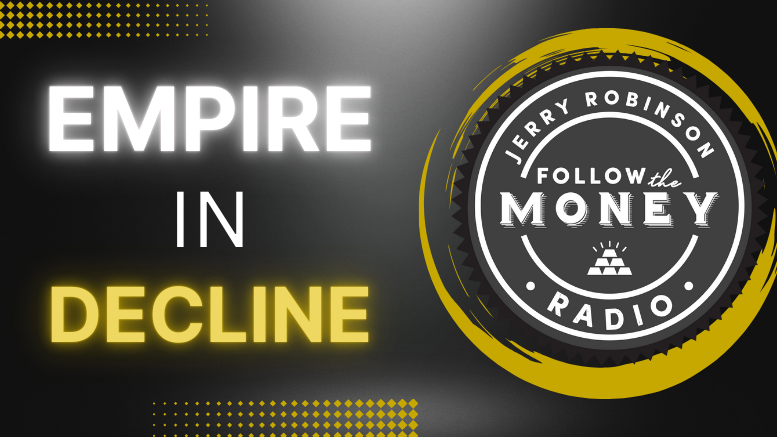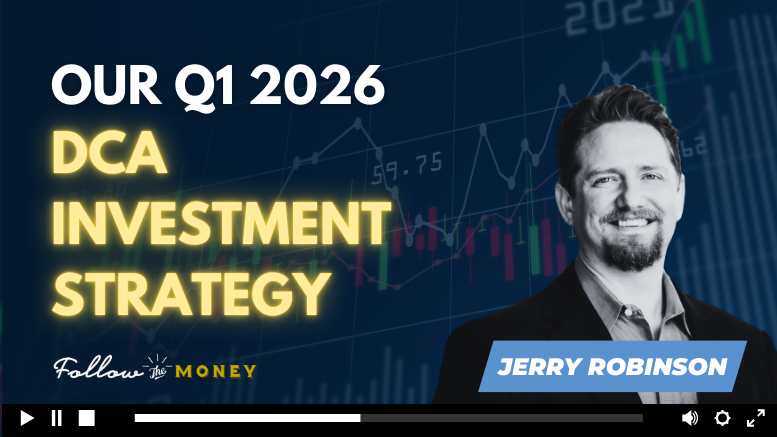
NEW! LISTEN ON TUNEIN RADIO
TODAY’S PODCAST
Why America is Becoming a Renter Nation
On today’s podcast, Jerry Robinson explores the reasons behind the soaring rental demand in America.
Americans are Getting Poorer. Evidence that Americans are getting poorer: Total inflation-adjusted household median net worth for Americans has decreased from just over $87,000 in 2003 to about $56,000 in 2013, a 36% decline.
Soaring Student Loan Debt. The average student loan debt for students graduating from a public university was $24,000 in 2009 (obviously much higher for those attending private schools), but it is even higher in 2014. So, when you are that heavy in debt and still trying to find a decent job, earn enough income, and build up your credit score, it is very likely that you will simply rent your home. This has been a big point of discussion for financial professionals and for those who own property, as they want millennials (those reaching adulthood around the year 2000) to become homebuyers sooner rather than later.
Fewer Buyers Equals Surplus of Homes. Baby Boomers (those born between 1946 and 1964) really enjoyed a rapid rise in their incomes over their working years. Many have moved out to the suburbs and built themselves “McMansions” as they became known, customized and outfitted with every convenience. No doubt it is a concern over who will buy these homes when the Baby Boomers are ready to retire and can no longer afford to live in these big homes. No doubt they are very concerned over the lack of home-buying desires from the younger generation. Nearly 10,000 baby boomers are retiring every single day, and this trend is expected to continue for the next decade. Many of these people bought more home than they can afford. And of course when they retire, they will want to sell their home, and are under the assumption that they will be able to get their money out of it and that there will be a buyer when they are ready. Unfortunately, we are no longer in a position of rising incomes and rising net worths. The wealth of this nation continues to move into the hands of fewer and fewer individuals (a.k.a. the producers). If you have a home you cannot afford to keep, you may want to re-think your situation now before the number of potential buyers gets even lower.
Millennials Don’t Want the McMansions Anyway. And if you are a millennial, where are you going to live? In a huge, expensive home outside the city with a long drive from your job? Or are you going to rent an affordable place in the city that is convenient to your job and lifestyle? After all, 81% of Americans live in an urban area, and that number is growing according to U.S. Census Data. Because of that, you have all these people clustered together, competing for the same jobs and the same apartments or homes. But the millennials are not chomping of the bit to move out to the suburbs where the baby boomers are living. Many younger people want to live inside the city, which is why there are so many multi-family units going up in the cities. Also, many of the younger generation are not going to live in the same city or the same part of a city for long periods of time because they will likely change jobs several times throughout their careers.
Homeownership is Not For Everyone. Many of the huge houses in the suburbs were bought by the generation that was the wealthiest generation in all of history (Baby Boomers). There is a lot of concern as to whether the boomers will be able to get out of these homes when they need to. So this is why you see so many financial commentators promoting the idea that millennials should go out and by a home. But the idea of buying a home is not as much of a dream as what it’s hyped up to be: property taxes, insurances, homeowners associations. So it doesn’t make any sense that millennials should just automatically want to buy a home.
Economic Conditions are Ripe for Investors. The financial education of millennials has not improved as compared to previous generations. They saw their parents and friends get wiped out in stocks and real estate in 2008, and so now they are simply fearful of getting into these assets. And to make matters worse, as the millennials have stayed in cash and out of stocks since 2008, they have missed one of the biggest stock market rallies in history (Fed-inspired, of course). So, the bottom line is that these conditions are perfect for real estate investors. The younger generation is scared, or simply unable, to buy a home in this economy. But they have to live somewhere, and 81% are living in the cities, not the suburbs. They will certainly rent, and they are renting for long periods of time. Rental properties in cities are not going to perform poorly, but the real estate sector that may be hit the hardest are the McMansions in the suburbs. If you own affordable housing, I believe you are well-positioned for the next decade or even longer. America is turning into a renter nation. Homeownership is at historic lows, and the trend continues. And that’s how it’s always been in the past. There were wealthy individuals who owned land, and there were people who paid for the right to use that land.
Subscribers Tune in Wednesday. This Wednesday, I will be hosting a subscribers-only webinar, on which I will be sharing my favorite ways to capitalize on the renter nation that America is becoming. I will be talking about my personal real estate plan, as well as how to invest in rental real estate without ever purchasing a property.
Listen to Today’s Podcast on Youtube
 “A Daily Stock Trading Idea for Short-Term Traders”
“A Daily Stock Trading Idea for Short-Term Traders”
— Subscribers Only —
You are attempting to view premium content for subscribers only. If you are a subscriber, log in here. If you are not currently subscribed, you can learn more here.
Enter the Trading Room to View all Trading Activity >>
View our Trading Performance >>
Not a subscriber? Learn more here >>
Recent “Follow the Money Daily” Podcasts
 “Daily Investment Trends for the Savvy Investor”
“Daily Investment Trends for the Savvy Investor”
Will You Know When to Sell Before the Next Market Crash?

U.S. Financial Markets
Real-time Gold and Silver Prices
 
|
View Our Current Precious Metals Specials Here >>






 “A Daily Stock Trading Idea for Short-Term Traders”
“A Daily Stock Trading Idea for Short-Term Traders” “Daily Investment Trends for the Savvy Investor”
“Daily Investment Trends for the Savvy Investor”









